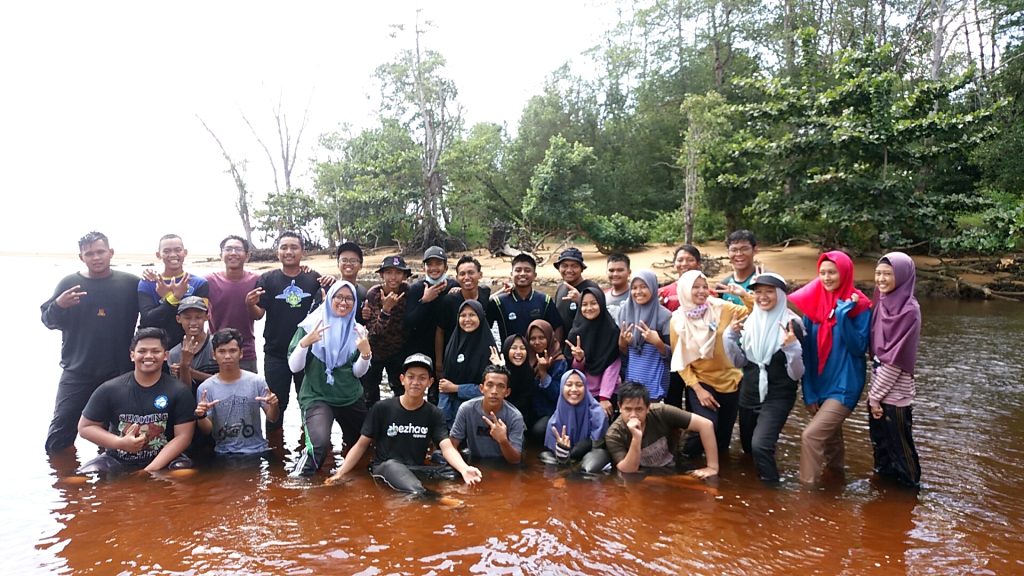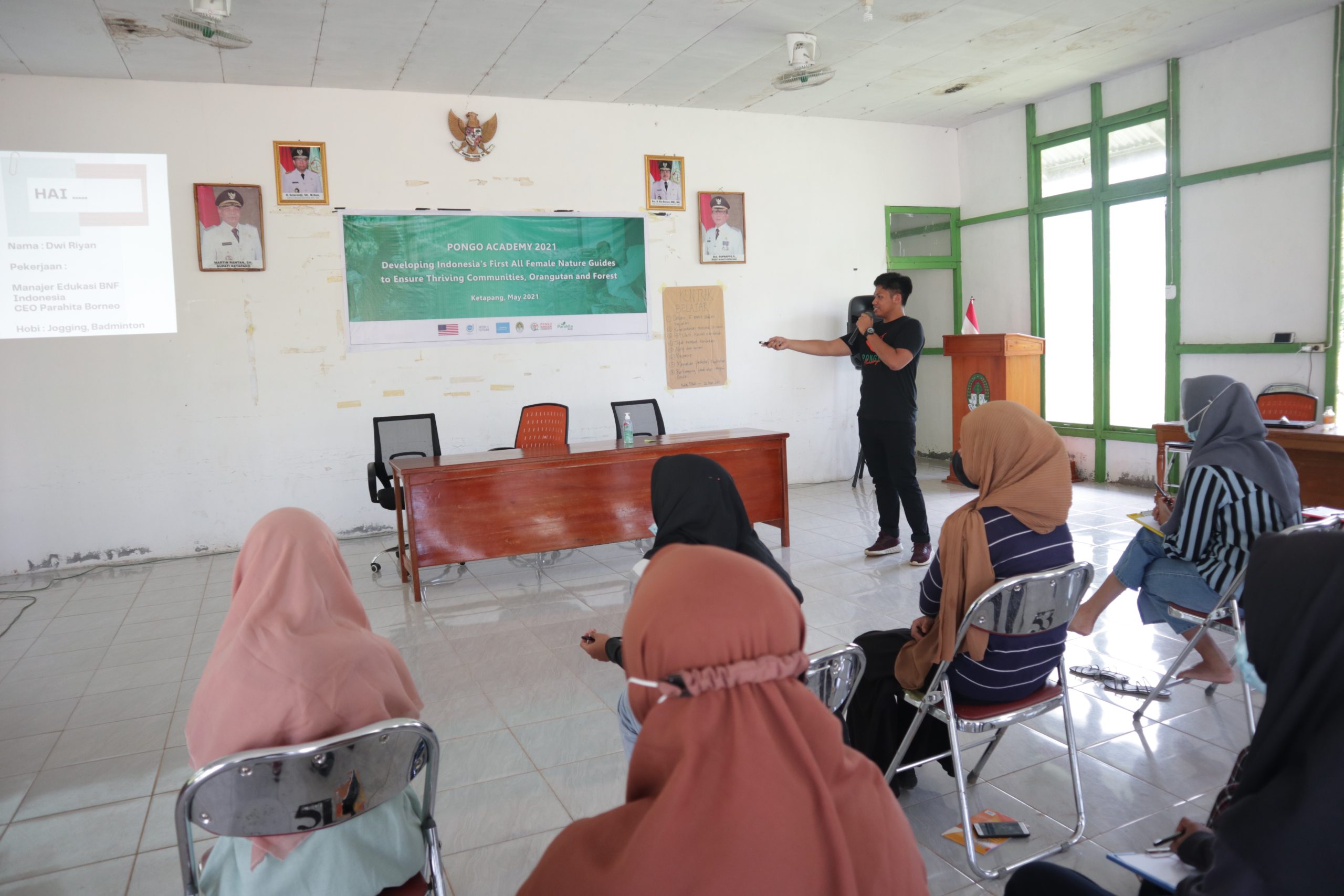I grew up in a city with unique ecosystems, from abundant peatland forests to beautiful coastal areas: Ketapang regency in West Kalimantan, Indonesia. However, it was only in 2015 that I realized how little I knew about the nature around me. I started my sustainability journey by becoming part of the first cohort of a conservation camp with other youth in Ketapang.
I never expected this camp to take me this far in the conservation world and allow me to start a career as a human–orangutan conflict officer. I saw the destruction of forests and how it was affecting human lives. Adults are vital to reducing conflicts between humans and orangutans. But one segment of the community was absent from this balancing act between conservation and human life: young people.

My powerful vehicle: the Pongo Ranger Community
In 2017, I decided to team up with a few colleagues to build a platform to increase youth participation in our regency. We named the community the Pongo Ranger Community because of our background as the founding team from the orangutan organization. Pongo Ranger was the first youth community group in our regency, focusing on educating youth and kids about orangutans and their habitat.
For the first three years, we worked with other NGOs in Ketapang to build youth awareness of orangutans, forests and other wildlife by visiting schools and hosting movie nights, creating an English club platform that integrated the value of environmental education. We collaborated with many NGOs and the local community, and our projects in 2020 brought us to one village in Ketapang called Tanjung Baik Budi, home to an “amphibious” ecosystem bounded by a forest and the coast.

A Pongo Rangers workshop
The unforgotten mangroves
Many NGOs work on land, including ours, but no one else focuses on preserving mangroves. Our visit to Tanjung Baik Budi allowed us to discuss with the locals about their concerns around damage to the mangrove ecosystem caused by the seawater intrusion into their farmland. We analyzed the destruction in Tanjung Baik Budi, which reached 9 ha and required the planting of more than 26,000 mangroves. We then decided to help the community and start to support this vital coastal ecosystem.

In 2021, with generous funding from the YSEALI SEED Grant, our project, titled “Pongo Academy: Developing Indonesia’s first all-female Nature Guides to ensure thriving communities, forests, and orangutans” received the support of the US Embassy in Indonesia. This allowed us to integrate mangrove rehabilitation activities into our capacity-building work and use eco-polybag weaving products as pots for the mangrove seedlings. We started using plastic-free polybags for the planting project, receiving the support of Seastainable, a Singapore-based social enterprise, to plant our first 1,000 mangroves.

Collaboration is key
Only when all stakeholders are involved in this mangrove restoration effort can we guarantee the project’s sustainability. Inclusivity is the crux of our project as we partner with local communities as custodians of nature, along with government, the private sectors, and NGOs. Government policymakers are also essential as they set and enforce the rules for nature conservation. The private sector also supports the management of this ecosystem through corporate responsibility. We will continue this multi-stakeholder approach as part of the 2023 Restoration Stewards program, and we are keen to continue to create enormous impact with stakeholders in our area.

By Dwi Riyan, 2023 Restoration Stewards
Edited by Shafa Fakhira, social media specialist, Pongo Ranger Community

